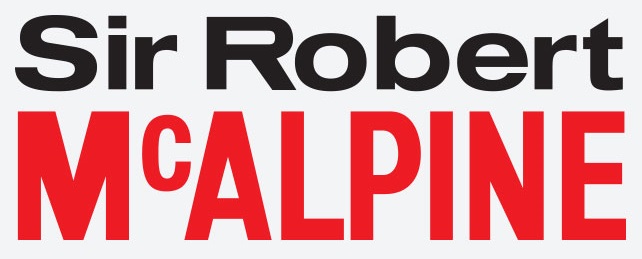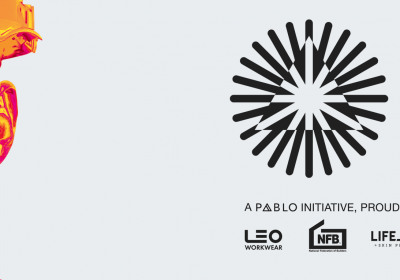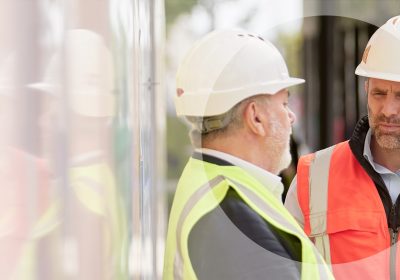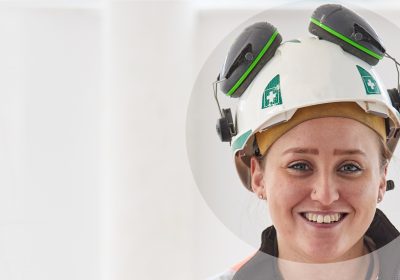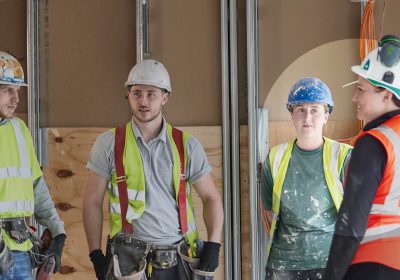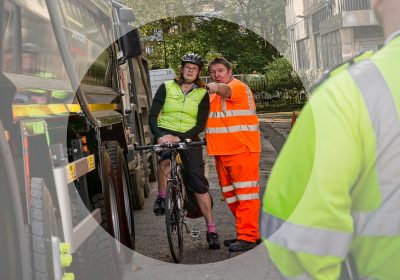Spotlight on… equality, diversity and inclusion provides information and resources to highlight the importance of a diverse and inclusive workforce and the benefits to employers, individuals and the wider community.
Examples of best practice
The Scheme aims to raise standards in the construction industry by sharing examples of best practice with the industry. Below are a number of examples of best practice that have been witnessed by Scheme Monitors on their visits, or have been submitted directly to the Hub by registered organisations.
Wudu Room
As part of their diversity and inclusion efforts onsite, this contractor has installed a dedicated wudu room to support Muslim workers in performing their ritual washing before prayers. The room features a specially designed basin for washing hands, feet, and face, providing a clean, private, and respectful space. Conveniently located near the prayer room, it ensures easy access while accommodating…
Safety Alerts Narrated to Assist Neurodiversity
This contractor distributes weekly lessons learnt and safety outcomes across the business to ensure that we are improving as an industry. These communications cover recent activities which have taken place and distribute information on how to implement best safety practice and avoid near misses. From internal workforce feedback, they have implemented a system which narrates these lessons learnt, and safety…
Women’s PPE Roadshow
This contractor worked with their suppliers to arrange a ‘try on’ event for the women’s PPE range. This gave female colleagues the opportunity to try out the range on offer in a variety of sizes to ensure a comfortable fit and order what they required on the day. Providing properly fitting, comfortable PPE in women’s sizes, is an important way…
Site Set Up Manual including PPE for Female Workers
With an increasing female workforce, this contractor have included within their site set up manual, PPE available to sites from their partners provider. The provider ensure that ‘Caddick selected’ PPE are in stock for call off when needed. This includes female sizes which are a better fit for the female members of the workforce.
AI Briefing System
This contractor employed the Synthesia AI avatar system to voice over in house videos using 3D modelled images and animations to visually communicate a variety of systems to the workforce. This is an AI avatar system that can voice over any animated document developed by simply typing the text into the system. The system allows you to choose from over…
Inclusive PPE in Construction
The Chartered Institute of Building (CIOB), Construction Management Magazine and CIOB People have launched a new campaign to address the lack of inclusive PPE in construction. They brought together a panel of experts to hear their experiences of badly fitting PPE, why it is dangerous and what needs to change. The current shortcomings in PPE provision are nothing new for…
Supporting Adults with Learning Difficulties into the industry
This contractor is working with a supported employment agency to welcome two new members of the team with learning disabilities. They have a work coach to support them with their daily activities on the work placement. There is significant evidence that there is an untapped market of unemployed people with additional learning needs or learning disability that want to enter…
Multi Language Code of Considerate Practice Board
The construction industry consists of workers who are from all over the world and may not speak English, in order to help their workers and contractors understand and absorb the Code of Considerate Practice they created a language board. This helped them to explain and engage all workers with the Scheme as there were no language difficulties preventing them from…
Women’s Prison Accredited Employability Support
Prison programmes within construction tend to be aimed at male prisoners, however this was different. The contractor provided accredited ‘Be Your Best’ employability sessions to residents of the Bella Centre in Dundee, Scotland’s first community custody unit for females, to help them prepare for release. The programme helps women with personal evaluation, job searching and networking, writing a CV, personal…
Neurodiversity Mentoring
The Senior Construction Manager on this project offers neurodiversity mentoring to colleagues in the industry. They provide individual support and guidance to those with neurodiversity conditions, such as autism, ADHD, or dyslexia. They holds monthly 1 to 1 sessions to provide support whilst going through the diagnosis process, advice on the reasonable adjustments the company should consider and their legal…
Female Comfort Boxes
After recently carrying out some research into female site welfare standards, one suggestion was to provide ‘comfort boxes’ in the female toilets. Alongside enhancing their minimum standards for toilet facilities following feedback from their employees and visiting clients, they also teamed up with Grace and Green who provide sustainable sanitary solutions that are not only plastic free, but organic and…
Supporting a Diverse Workforce
Recently a colleague on this project began the process of transitioning from female to male. The contractor worked to normalise the fact they were transitioning. The social value manager had conversation with them to find out what they needed from the contractor as a team to support them, as the situation new to both them and the team. They were…
Menopause Action Group
This contractor has set-up a Menopause Action Group, recognising that for many people who experience the menopause that it can have huge impacts on their personal and professional lives. The group aims to raise awareness both in work and at home including for men who have partners going through the same. They have implemented specific measures to support their people…
Equal Parenthood Policies
This contractor has implemented industry-leading equal parenthood policies. All employees (any gender) will have access to 6 months parental leave on full pay, followed by 13 weeks half pay (applicable to those people with a due date from first week in October) – regardless of how they become parents, including birth, adoption or surrogacy. There is a new phased return…
Lovell Partnerships – Investing in a Sustainable Workforce
On the Best Practice Hub we have published case study videos detailing how the registered activity have worked to become more inclusive, and the benefits of increasing the diversity of their workforce This case study from Lovell Partnerships, delivered by Nicola Schneider, Community Relations Manager details how they are investing in a sustainable workforce to make their organisation a great…
Morgan Sindall – Work Experience and it’s Positive Impact on the Diversity of the Entry Level Talent Pipeline
On the Best Practice Hub we have published case study videos detailing how the registered activity have worked to become more inclusive, and the benefits of increasing the diversity of their workforce This case study from Morgan Sindall, delivered by Mike Little, Head of Social Value details how work experience has had a positive impact on the diversity of their…
Combatting Period Poverty
This contractor believe all women should have access to sanitary products during their period however, there are many women who are experiencing period poverty and are unable to access or afford them. These women have no choice but to use rags, socks, or even newspaper to manage their menstruation, making them vulnerable to disease. This project team decided to make…
Disability Caused by Works Forum
The Equality Act 2010: ‘We have a duty not to substantially disadvantage a disabled person in relation to a non-disabled person’ and to make reasonable adjustments to supply access where practicable. As a public body, Transport for London (TfL) must comply with the Public Sector Equality Duty (PSED). This part of the Equality Act 2010 requires public bodies and organisations…
Gender Neutral Washrooms
In recent years, society has made huge strides towards gender equality. However, deciding which bathroom to use is a common problem for people who identify as transgender. Gender neutral washrooms are seen as far more inclusive for transgender individuals. Therefore this contractor has implemented gender neutral washrooms that are lockable self contained units which provide dignity and privacy. Each unit…
Breast Feeding Friendly Site
On this site they have pregnant women or mothers present, therefore they have recognised a private space was needed to pump in private to keep up their supply therefore they dedicated a private nursing room for use by the project team and visitors, with a range of appropriate facilities as a minimum standard. The facilities provided include a comfy chair,…
3 Point Plan for Women’s Welfare
This contractor implemented a 3 Point Plan to support women’s wellbeing at work. This plan focused on domestic violence, period dignity and self-defence to create a safer environment both in and out of the workplace. This is especially poignant as domestic abuse reports significantly rose during lockdown & in 2020 it was reported that 55% of women were sexually harassed…
Talking Newsletter for the Visually Impaired
This project has a large amount of interaction with members of the public. While the usual visual aids in the form of signage and barriers along with printed newsletters and information boards are suitable for the majority of people, they are of little benefit to those who are visually impaired. Through pre-start site visits it was apparent that there were…
Gender Equality Workshop
To promote sustainable employment, a Women’s Network was established to enable locally recruited women to discuss key issues such as health, gender equality and celebrate International Women’s Day. The local women’s network provides the environment to enable women to not feel alone in a male dominated industry A recent outcome has been the creation of an interactive gender equality workshop…
Making Websites Accessible to all
Nearly one in five people have some form of physical, visual, auditory, cognitive, or neurological disabilities that could affect their ability to access information online the same way as other people. They may struggle with: Focusing on relevant sections of text The font, text size, or spacing of the text Poor colour contrasts between background and foreground Distractions presented by…
Veterans Committee
This contractor has a family of veterans working within the business including a group of ex-armed forces and ex-‘blue’ light service personnel who have landed in the construction industry one way or another. In order to support each other to the very best of their abilities, their Veterans Committee was formed. The Chairman and Vice Chairman are both ex-army, and…
Flexible Working
This contractor has long recognised there is a need to design more flexible roles and career pathways within construction. This has been accentuated by the pandemic, the increasing skills gap and competition for scarce talent. Consequently, the contractor has introduced a flexible working pilot on on of their sites. They have adopted new measures to ensure their staff return to…
English Lessons and Other Qualifications for Speakers of Other Languages
This contractor have been working collaboratively with Lambeth College and London South Bank University (LSBU), to pilot a programme which aims to upskill diverse members of their workforce who are foreign and often struggle with the English language, providing them with the opportunity to learn and feel more comfortable engaging with other people on site. This voluntary course will also…
Prison Leavers Academy
This contractor is working on a the new prison Leicestershire for the Ministry of Justice (MoJ) as part of their new prison transformation programme. The MoJ have set Social Value KPI’s focusing on supporting prison leavers into employment. At this project the target is to create 100 jobs through the project with 25% of these to be for prison leavers…
Binny Sanitary Bins
This contractor trialled sanitary waste disposal from Binny. They Dispose of all sanitary and personal waste, are fully compliant with all legislation including HSE, EA and DOH and significantly reduces sanitary bin carbon footprint and cost savings. Using this system removes the need for sanitary bin suppliers and contracts. To find out more, click the link below.
Pride LGBTQ+ Helmet Stickers
In order to celebrate Pride Month, the contractor team on this project have provide Pride LGBTQ+ helmet stickers. Additional to this the contractor showed support to those celebrating Pride Month with banners placed at the vehicle gates and small flags were distributed to office workers.
Fairness, Inclusion and Respect Ambassadors
This project has appointed three Fairness, Inclusion and Respect Ambassadors as they are committed to ensuring every person feels included and celebrated. They do this through their site inductions where they reinforce their commitment to inclusion and a no-tolerance approach to discrimination of any sort. They celebrate different cultures and beliefs through regular events and raise awareness of issues and…
Inclusive Workforce Board Game
This contractor has implemented an inclusion workshop featuring the interactive board game ‘Equally Yours’ on their projects. The game required participation from 24 volunteers which were split into two groups of 12 with the session held on Microsoft Teams. Participants included staff from various disciplines to ensure that the participants accurately represented the team. Launching in conjunction with International Women’s…
Farrans DNA Initiative
DNA – Diversify/Nurture/Accept. DNA is an initiative developed by three people within the contractor. It is a network aimed at all the protected characteristic groups (age, disability, gender reassignment, marriage and civil partnership, pregnancy and maternity, race, religion or belief, sex, sexual orientation), with the goal to build meaningful support networks to inspire and empower people so that they can…
Personal Safety Conversation Cards
After the tragic murder of Sarah Everard, recent campaigns, vigils, media spotlights, and focus on harassment and violence; this contractor have created a number of new safety conversation starter cards. These have been used as an aid to help open up conversations with the teams regarding personal safety, women’s safety and diversity. By having the conversations, it has made operatives…
Ethical Labour Practices and Human Rights Webinar
The project Team marked International Human Rights Day by hosting a live webinar with guest speaker Annabel Short, Senior Advisor of the Built Environment for the Institute for Human Rights and Business (IHRB). The webinar was open to all staff as well as clients, consultants and supply chain partners. The discussion covered what human rights mean in practice in the…
Promotion for National Inclusion Week
As part of promotion for National Inclusion Week during the week of 28 September 2020, Balfour Beatty published a video to share staff views on what inclusion means to them. This helps to raise awareness of inclusion and diversity within the workplace and the role we all play in creating an inclusive culture. Watch the video below.
Eliminating Everyday Sexism
Lendlease is passionate about encouraging a diverse workforce into construction. At Potato Wharf we embrace diversity in the workforce and as part of this we delivered an everyday sexism presentation to the workforce. This went down very well and encouraged conversations within the workforce about what is acceptable conduct and the impact of our actions. This formed part of a…
Using Social, Moral, Spiritual and Cultural Drivers with Construction Trainees
Adopting educational teaching methodology for construction trainees using Social, Moral, Spiritual and Cultural (SMSC) drivers as a guiding principle for the training framework developed with liaison with teaching professionals. This is part of the curriculum being adapted to use in the training of apprentices and for the development of an improved mental health culture on site. The principle consists of: Social:…
Fairness, Inclusion and Respect Ambassador
Fairness, Inclusion and Respect (FIR) Ambassadors promote a culture of Fairness, Inclusion and Respect within the organisation in which they work. They are expected to embody the principles of FIR: work collaboratively, whilst stepping in to take action, challenge behaviours and positively impact workplace culture. The project team have signed up to the Fairness, Inclusion and Respect commitments and they…
Let’s Educate Ourselves
At the Broadway our wellness programme includes a section on ‘keep learning’. With so many critical subjects at the moment, we have started a “Lets Educate Ourselves” campaign and this is now filtered to the whole business, through the project Senior Office Manager and the companies Digital Content Lead and Social Sustainability Manager. We aim to cover a subject every…
TfL Valuing People Workshop: Working with Adults with Learning Disabilities
Transport for London (TfL) have adopted the Healthy Streets Approach to improve air quality, reduce congestion and help make London’s diverse communities greener, healthier and more attractive places to live, work, play and do business. The vision for Equality and Inclusion is that every person matters in keeping London moving, working and growing. The Equality Act (2010) places a duty…
Presenting the Opportunities Available to Women in Construction
To celebrate International Women’s Day, Kelly Sowden and Sophie Dick hosted a presentation at Temple Moor High School in Leeds to Year 11 students, to promote engineering roles and role for women in engineering. They discussed the different types of engineering and how John Sisk & Son aim to increase the number of women they hire into the industry. Gender…
FREDIE Notice Board
As part of being accredited as Leaders in Diversity, we have set up a notice board on site to promote the values of FREDIE: Fairness, Respect, Equality, Diversity, Inclusion and Engagement. A FREDIE calendar highlights events throughout the year, such as Mental Health Awareness Week, Black History Month, Pride and Time to Talk Day. There is also a Wellbeing Calendar…
Learning a language with Duolingo
At South Quay Plaza (SQP), we value the diversity of our workforce and inclusivity is important to us, therefore a number of Berkeley Managers have embarked on a mission to learn the basics of a language which is common on site using Duolingo. Even simple phrases such as ‘hello’, ‘good morning’ and ‘how are you’ have made a positive impact…
Achieving ‘Investors in Diversity’ (IiD) Standard
This company’s vision for FREDIE (Fairness, Respect, Equality, Diversity, Inclusion and Engagement) is to create an industry-leading culture with inclusive and inspiring workplaces. They will embed FREDIE principles into all areas of their business which will transform how they work with their people, customers and communities and supply chain. Galliford Try Highways has been conditionally awarded the Investors in Diversity…
Monthly Equality, Diversity and Inclusion Toolbox Talks
All site and office based staff complete a monthly toolbox talk about equality, diversity and inclusion. Themes have included disability, LGBT+ and religion. To date, 1500 members of the team have participated. Videos, games, quizzes and presentations are just some of the formats used to date. Tool Box Talks have taken us from 4% to 80% Equality Diversity Inclusion training…
Incorporating Disability Equality into Construction
Transport for London (TfL) have adopted the Healthy Streets Approach to improve air quality, reduce congestion and help make London’s diverse communities greener, healthier and more attractive places to live, work and enjoy. The vision for equality and inclusion is that every person matters in keeping London moving, working and growing. TfL also recognises the role of transport in improving…
Supporting Belfast Pride
Belfast Pride Festival is one of the biggest festivals in the city and runs over 100 events across 10 days. The festival runs from Friday 26th July until Sunday 4th August (Pride Day) and the centrepiece Pride Parade on Saturday 3rd August with many local businesses and community groups taking part. The Belfast Pride Parade is the biggest cross community…
Gender Equality Video
The construction industry lacks diversity. There are various diversity issues within the industry and there have been various attempts to tackle the issue. Gender disparity has been one of the diversity issues, as the construction industry is still predominantly male dominated. Changes take time, especially attitude changes. The unconscious biases exist in the industry and the changes in construction industry…
Culturally Diverse Welfare Facilities
To ensure that cultural diversity is catered for on the BioCork 2 site, a ‘squat toilet’ was installed. The Carpenter on site made a carcass for the squat toilet to be encased. A waterproof anti-slip covering was then installed. The unit then was plumbed in and a hose was installed in case users may not use toilet paper. Earlier in…
Equality and Diversity Policy Template
The Considerate Constructors Scheme has produced an equality and diversity policy, for contractors to use on site or in the workplace in general. This is aimed at ensuring no-one is discriminated against on the basis of race, religion, ethnicity, age, gender, sexuality or disability, in line with the Equality Act 2010. Please be aware that this Scheme document has been…
Providing ‘Period Dignity’ within the Construction Industry
Over the past few years, the construction industry has been trying to improve the diversity of the workforce by encouraging more women into the industry. However, as the industry is still fairly male orientated, there is still a risk that welfare facilities and toilets may not be suitable for female members of staff (for example there may not be clean/…
Intercity Best Practice Sharing
Discussions have been taking place between Transport for London (TfL) and Brighton & Hove City Council (BHCC) on ‘all inclusive’ approaches to diversity and inclusion at roadworks. TfL are presently trialling alternative methods at two major works sites, Old Street and Highbury Corner which involves working closer with local communities and disability groups to better understand their challenges. Subsequently, BHCC…
Inclusive Workforce
This site is the best performing joint venture (out of the seven working for HS2) in terms of equality, diversity and inclusion. Notable achievements include workforce representation with 42% of workers are women, 16% are ethnically diverse and 10% are disabled. The site has been given an AA rating in terms of the Web Content Accessibility Guidelines and the entire…
Celebrating Diversity by Celebrating Nationalities
At 48 Carey Street, Multiplex decided to demonstrate its commitment to respecting diversity by celebrating the national days of the home countries of everyone working on site. On that day, their country’s flag is flown in the canteen, and traditional food from that country is prepared. ‘Inclusion’ posters have been posted around the site, proudly displaying the site team that…
Supporting Cultural Diversity on Site
In considering cultural issues, the site has provided an adapted toilet cubicle and WC pan which may be used by certain cultures where squatting is the norm rather than sitting. This cubicle can also be used by people with a disability due to the size and extra handholds in place. This can be replicated on sites, which anticipate a mixed…
Women’s Network and LGBT+ Support Group
Costain Skanska JV have established a Women’s Network and LGBT+ Support Group for all members of staff on the project, including supply chain. Both groups are chaired by Equality, Diversity and Inclusion Champions. The groups now have a combined membership of 45 people. The Women’s Network specifically supports women in the industry and those returning to work. The LGBT+ Network…
Creating a Culture of Inclusion
Mace have made a targeted effort to ensure that Mace has a culture of inclusion. Mace senior leadership have attended the 2017 London pride event dressed in full Mace PPE. Mace senior leaders have also donned rainbow laces in support of external LGBT groups. Mace also promoted LGBT at their first launch event, which took place at the global HQ….
PPE for Muslim Women
Personal Protective Equipment is necessary on a construction site and all personnel should be able to wear it regardless of their gender or religious background. See the examples below for how one site developed inclusive PPE: Muslim women often commit to dress modestly in Hijab or Burka, which can come into conflict with PPE requirements. A Muslim female employee decided…
International Women in Engineering Day
International Women in Engineering Day is an annual event organised by the Women’s Engineering Society to promote career opportunities and celebrate successful female engineers. To celebrate this day on your site you could consider: Attending and presenting at a Women in Engineering event. Conducting a visit to a local school to promote engineering careers to young women and men. Encourage…
Female PPE Initiative
Women who work for BAM Nuttall are being supplied with workwear designed specifically for them. After a series of trials on a number of its sites in London, Leeds, Newcastle and Scotland, the company is rolling out a range of work clothing nationwide that is specifically designed for women. Working with workwear manufacturer Arco, BAM Nuttall has commissioned polo shirts,…
International Women’s Day
International Women’s Day is a global day celebrating the social, economic, cultural and political achievements of women. To support International Women’s Day on your site, you could do the following: Support and participate in ‘Women in Construction’ events; Have a robust equality and diversity policy ensuring men and women are treated equally; Visit the ‘International Women’s Day’ website to view resources…
Cultural Diversity
To support an ever growing cultural diversity amongst our workforce, we have adopted simple provisions to make sure everybody feels welcome and are able to make a positive contribution to the project. Our site is not the biggest, but we have been able to accommodate a prayer room in one of the smaller offices and at selected times of the…
IiD Handbook
We recognise that by having a diverse and inclusive workforce, we can make our place of work a great place to be. By raising awareness of being inclusive we can promote a culture which will further harness the unique skills, characteristics and experience which we have to offer. To do this we have established an Investors in Diversity steering group…
Improving Communications for Foreign Workers
It is important to provide the appropriate facilities and environment for foreign workers. Facilitating the foreign workforce is important in providing and encouraging equality and diversity within the industry. It is also beneficial towards increasing productivity if the workforce can work more efficiently together. One site demonstrated this through the below examples: The contractor retained approximately 30 Asian Muslim operatives on concrete…
Supporting Employees Affected by Cancer
Every year, almost 120,000 people of working age are diagnosed with cancer in the UK – a figure set to rise with survival rates improving and people retiring later. Consequently cancer has become a long-term condition, and therefore is rapidly becoming a more regular area for HR and line managers to manage in the workplace. Cancer and its treatments affect…
Bullying in the Workplace: ACAS
It is vitally important to provide a supportive and caring work environment, where all employees feel respected and fairly treated. A platform to enable staff to voice their concerns and problems should be available, to ensure employees individual needs are supported. Any workforce equality, diversity and inclusion policy statements should reference discrimination, harassment and bullying to show that these issues are not…
Stonewall LGBT Diversity Champions Programme
All members of the workforce should feel included and respected, no matter their age, gender, race, religion or sexual preference. Sites have visited the Stonewall charity for education in positive recruitment, engagement and retention of lesbian, gay, bisexual and transgender (LGBT) workers within the industry, with plans for Stonewall representatives to visit the site to wider workforce information and education….
CITB’s Be Fair Framework
A key requirement of the Scheme’s Code of Considerate Practice is to provide a workplace where everyone is respected, treated fairly, encouraged, supported and made to feel valued as an employee. All members of the workforce must be treated fairly and without discrimination. An ‘inclusion’ policy should demonstrate commitment to equality, diversity and respect amongst the workforce. Many companies are turning to CITB’s…
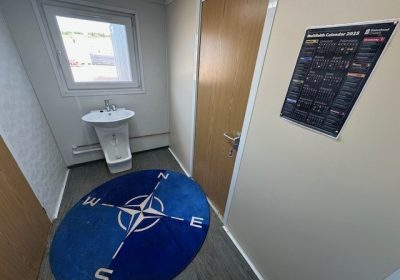
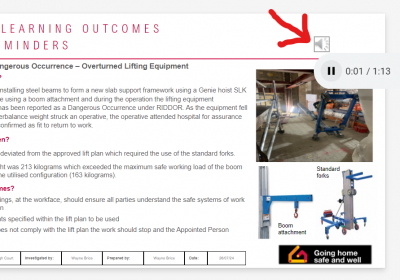
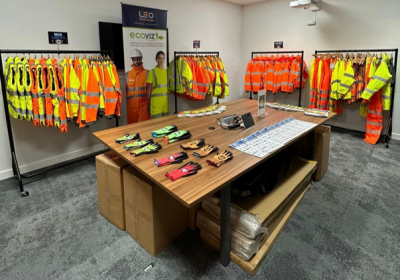
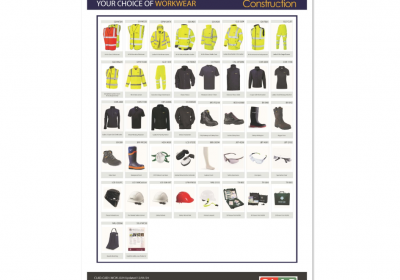
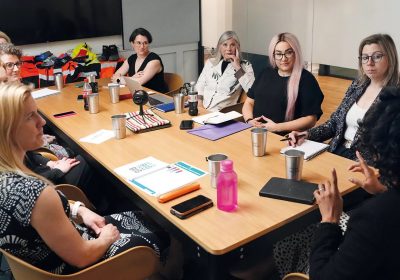
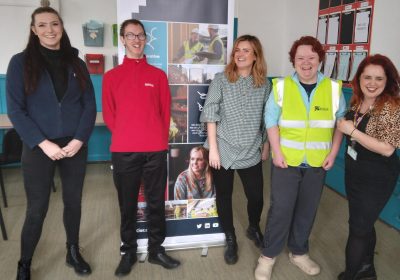
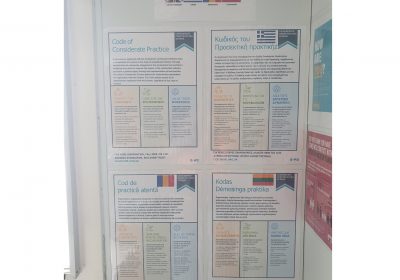

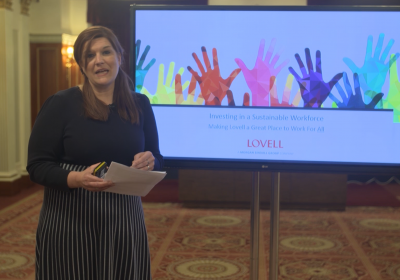
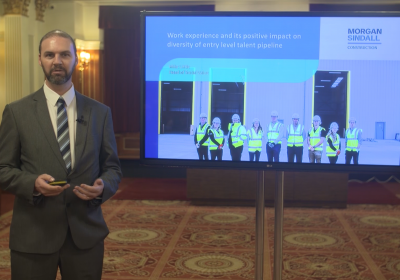
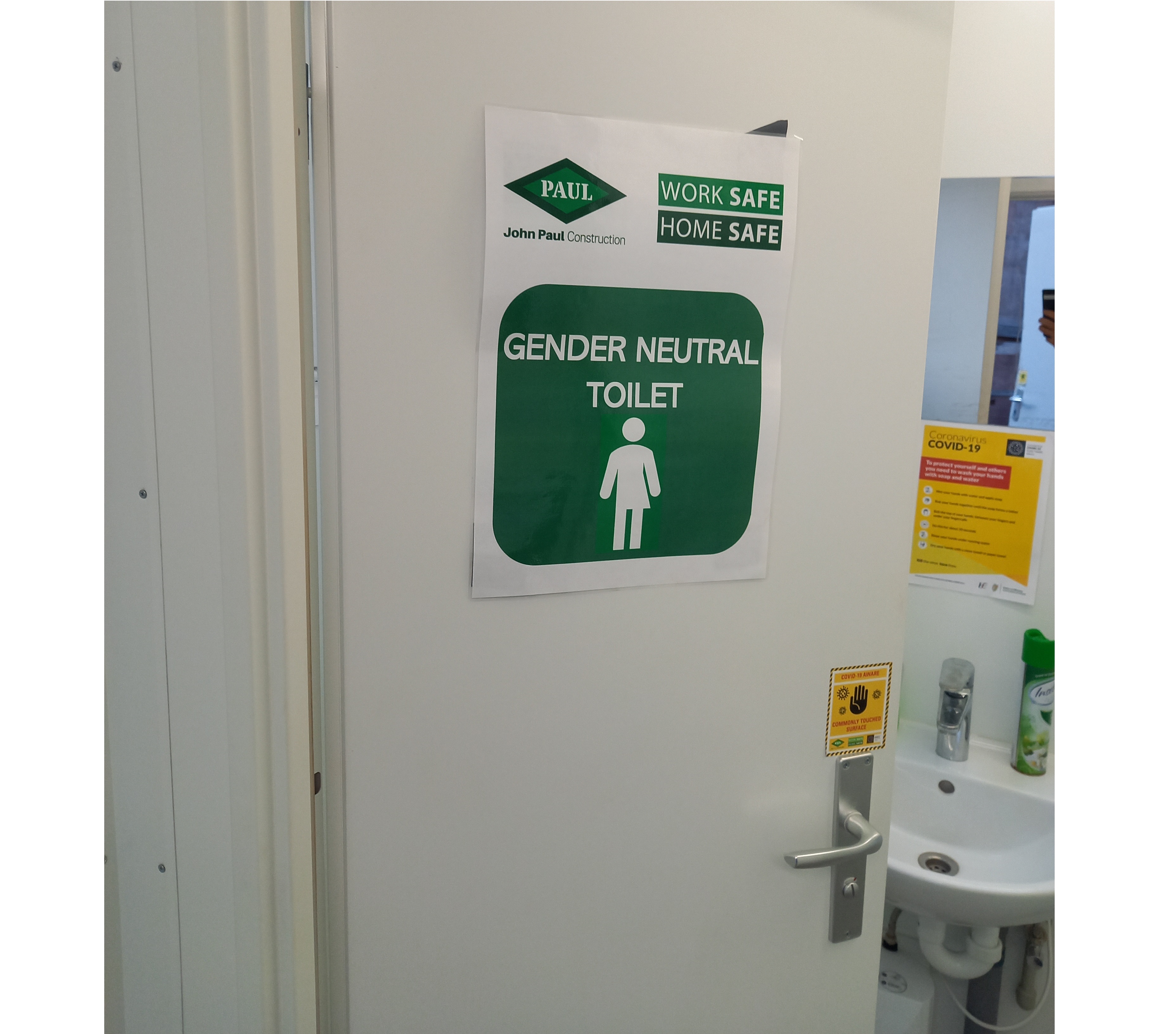
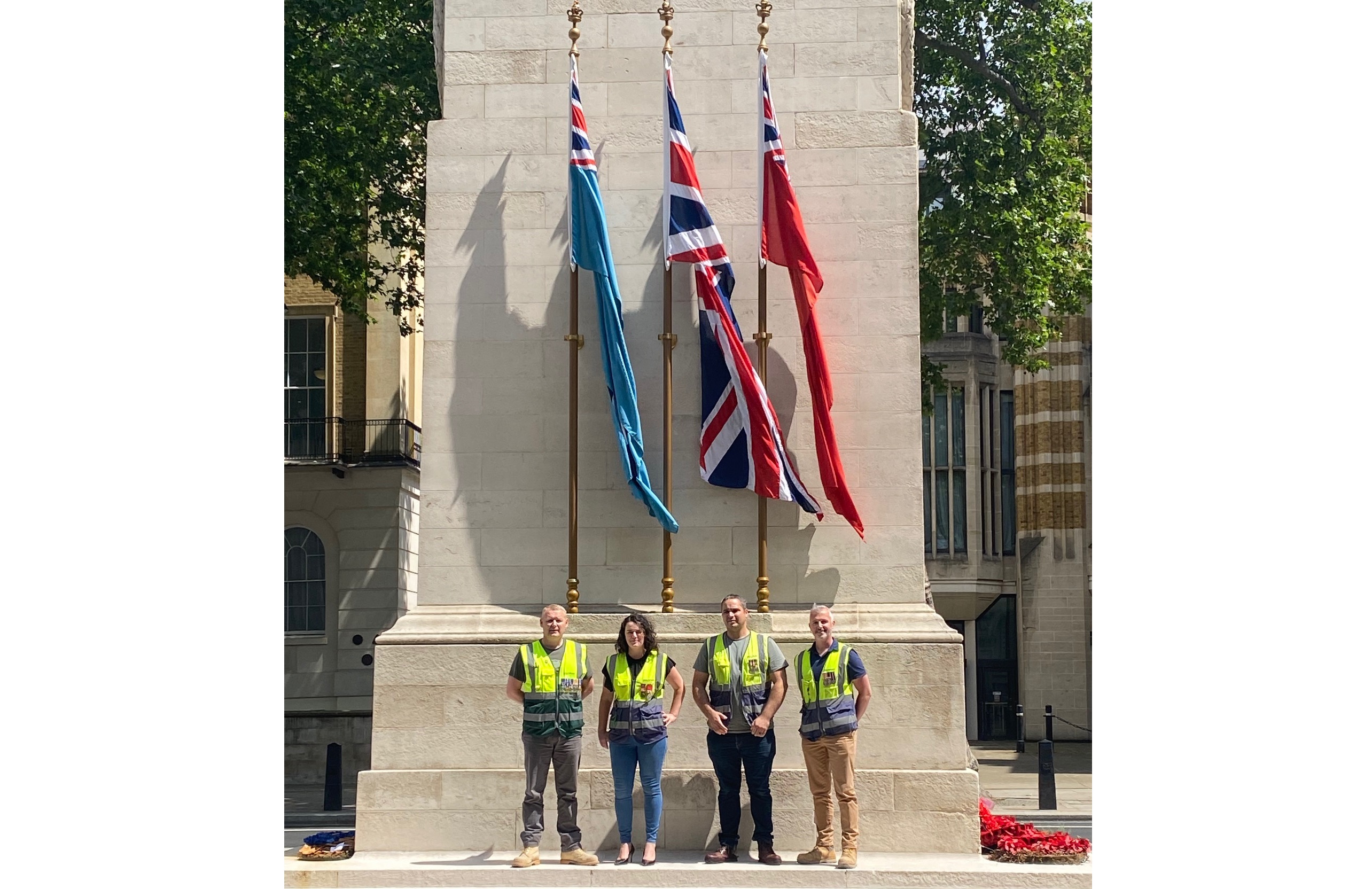

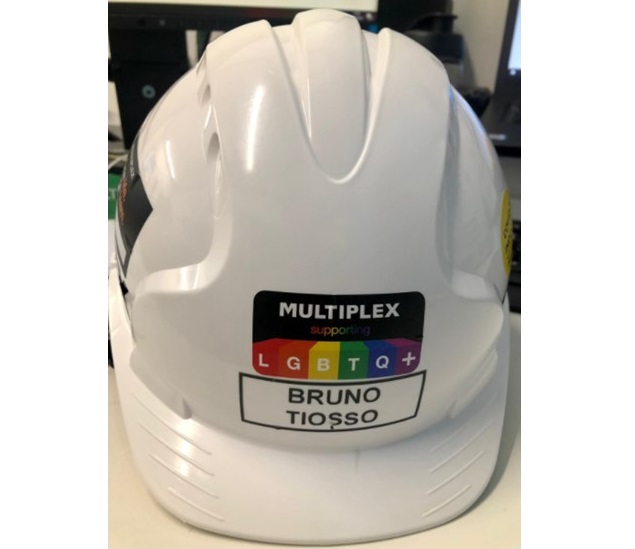


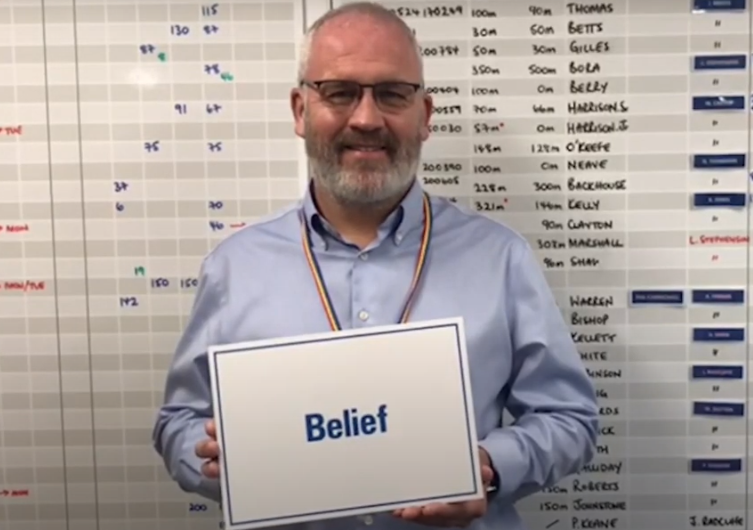

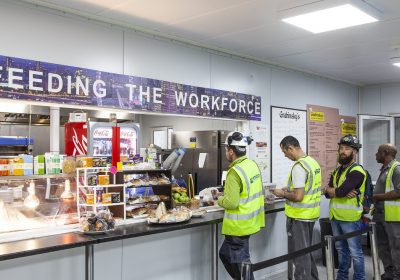
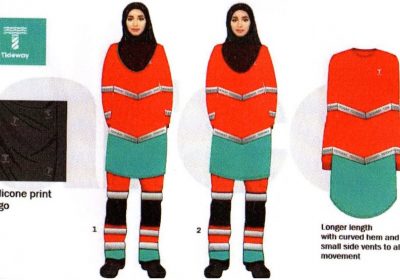
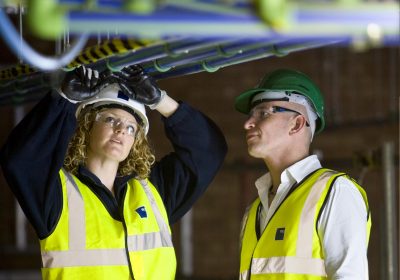
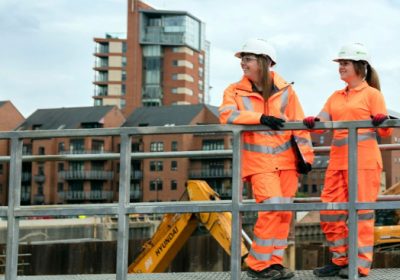
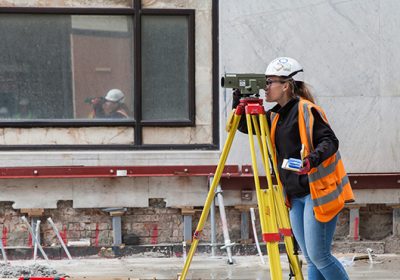
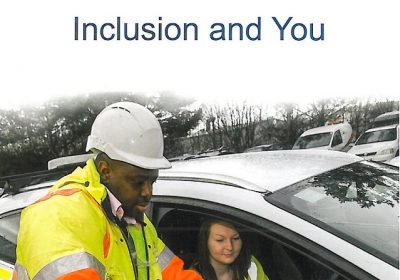
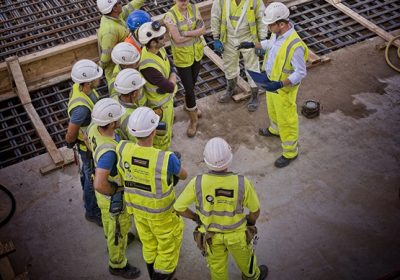
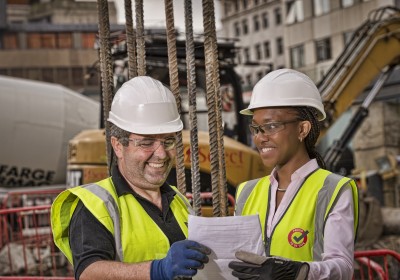



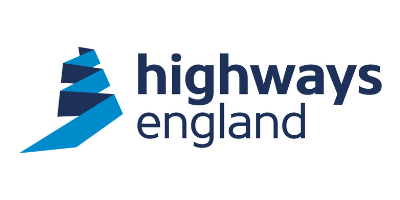
 Women Into Construction and
Women Into Construction and 



